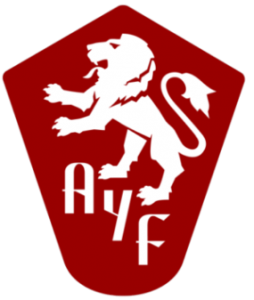A Not So Culture Shock: From Glendale to Artsakh
BY ALINA SOOKASIAN
Paralleling the zestful feasts that they present on twenty-foot tables and the flamboyant wardrobes that they fashion on the streets of Artsakh, the hearts and personalities of Karabakhtzees are immense. They are not putting on a façade when they greet guests with open arms and huge hearts; that is simply their true nature; their Armenian-ness as I would call it.
Our visit to Karabakh was simply proof of the bits and pieces of the colossal nature of the Armenian Culture that we see in America. Upon our arrival to the Stepanakert Youth Center, which by the way looks awesome, (Good job youth corps 2007!), the youth there approached us immediately, made us feel at home, and began conversing with us as they would their close their friends.
Hand in hand, walking through Artsakh, they showed us around and gave us as much information in their power about the history of their hometown. Meanwhile, grasping as much as I could to take back home with me, I realized I was not too far from home. In Artsakh, a car will not be caught dead driving by without providing ten seconds of an ear-aching screech for the entire community to hear. Patience is non existent; even if the meter says that there are 8 more seconds left to cross the street, you better run for your life to avoid getting hit by a car. With bakeries and hatzatoons on every corner, it is not humanly possible to fight off the temptation of snatching a khachapooree or a boncheek while walking by.
On a more serious note, we got along very well with the local youth. Before our twenty foot table feast, we played a game called “Mafia” with them. The funniest part was having to incorporate both our rules and their rules into one version and trying to understand the games’ lingo in both languages. During dinner we asked them if they had any recollections of the war there. One of the Ungers, Vahe, told us that he was six years old during the war. He recalled that on his walk home one day, by himself, the windows of his neighbors’ apartment exploded the second he walked past them and then he got punished by his mom for being out and unwillingly coming across this horrible experience. The girls just remembered the aftermath of the war, peoples’ attitude changes, lifestyle changes, etc. We made about 24 toasts that night, and sang our hearts away.
Prior to our visit to Stepanakert, we had the chance to experience the childhood activities and mannerisms of the youth in Shoushi. The kids that lived in the surrounding apartments of our hotel entertained us a good amount. We played soccer with them in the mornings, conversed with them in the afternoons and waved goodnight to them in the evenings, half way in tears because we did not want to separate. They were so vibrant and full of life; so eager to learn how to speak English. The thing that amazed me most was that they did not even know that a language known as “English” existed in the world. This was a HUGE shocker to all of us because we thought that even if people from different parts of the world do not know how to speak English, they would at least know of its existence. Robert, one of the little boys, after repeating “I love you” after me yelled out, “I love you? Ayseenkun meeyayn yes yev doo? (As in just ME and YOU?)”. Immediately after, he excitedly called his friends to join him in his English lessons, “ Dghek! Arek! Engleren em sovoroom! ‘I love you’ arten sovoretzee!”
Leaving these boys and girls from Shoushi after only having been with them for a total of maybe a few hours was the hardest thing some of us have had to do. I cannot even imagine how difficult it is going to be having to leave kids that we are now counselors of for two weeks. Stay tuned…




Leave a Reply
Want to join the discussion?Feel free to contribute!